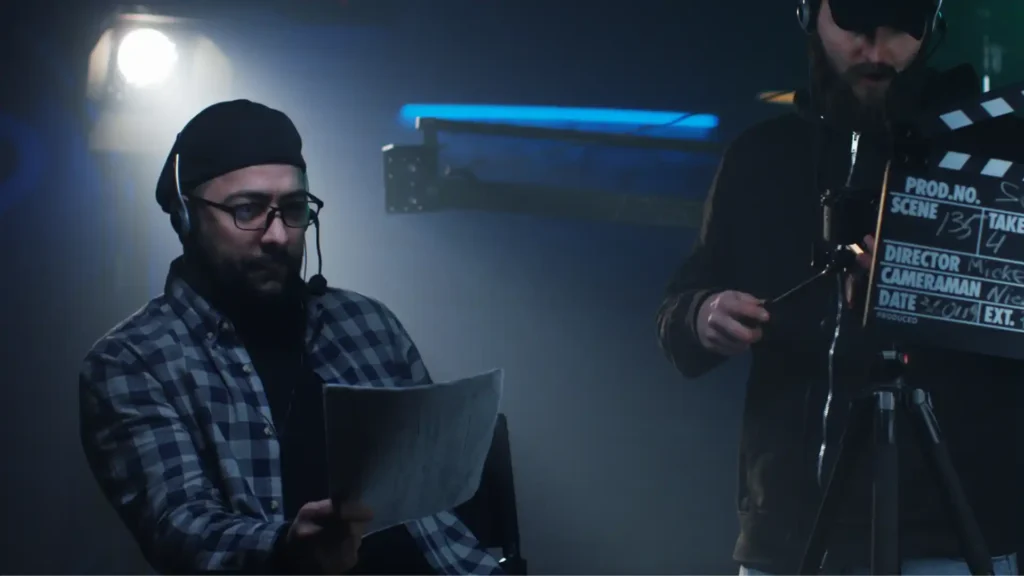Are you passionate about storytelling and eager to pursue a career in screenwriting? Finding the best screenwriting course can be a game-changer in honing your skills and kickstarting your journey in the competitive world of film and television. With countless options available, it can be overwhelming to choose the right program that aligns with your goals and aspirations.
To help you navigate this important choice, we have curated a list of factors to consider when evaluating screenwriting courses and highlighted some of the top programs that stand out for their quality, reputation, and industry relevance. From traditional classroom settings to online platforms, there is a diverse range of options available to accommodate different learning styles and preferences.
Let’s delve into the essential aspects to keep in mind as you search for the best screenwriting course to elevate your storytelling skills and propel your career forward.
1. Curriculum and Course Structure
When assessing potential screenwriting courses, one of the key factors to consider is the curriculum and course structure. A well-rounded program should cover fundamental aspects of screenwriting such as character development, plot structure, dialogue, and scene construction. Look for courses that offer a comprehensive overview of the screenwriting process, from concept development to script formatting. Additionally, consider the teaching methods employed, including lectures, workshops, and practical exercises, to ensure a dynamic and engaging learning experience.
2. Faculty and Industry Professionals
The expertise and experience of the faculty members can significantly impact the quality of a screenwriting course. Seek programs taught by industry professionals, screenwriters, and filmmakers who have practical knowledge and insights to share. A faculty comprising accomplished professionals can provide valuable mentorship, feedback, and networking opportunities that are essential for aspiring screenwriters. Research the backgrounds and credentials of the instructors to ensure that they possess the expertise to guide you effectively through the course material.
3. Alumni Success and Industry Connections
An indicator of a top-notch screenwriting course is the success of its alumni in the industry. Look for programs with a track record of producing talented screenwriters who have gone on to achieve recognition and success in film and television. Alumni connections and networking opportunities can also play a significant role in advancing your career prospects. Consider programs that offer industry events, guest lectures, and internships to help you establish valuable connections and gain practical experience in the field.
4. Feedback and Reviews
Before enrolling in a screenwriting course, take the time to research feedback and reviews from past students. Online platforms, forums, and social media can provide valuable insights into the strengths and weaknesses of a program. Pay attention to testimonials regarding the quality of instruction, course content, mentorship opportunities, and overall learning experience. Hearing directly from former students can give you a clearer picture of what to expect and help you make an informed decision about the best screenwriting course for your needs.
5. Flexibility and Accessibility
In today’s digital age, many screenwriting courses offer online or hybrid learning options to accommodate students with diverse schedules and geographical locations. Consider whether you prefer the flexibility of online learning or the interactive nature of in-person classes. Evaluate factors such as class sizes, access to resources, and the level of individualized feedback and support provided in each format. Choose a course structure that aligns with your learning preferences and lifestyle to ensure a positive and productive educational experience.
6. Specializations and Electives
Depending on your interests and career goals, you may want to explore screenwriting courses that offer specialized tracks or elective courses in specific genres or formats. Whether you’re drawn to feature films, television writing, web series, or interactive media, selecting a program that aligns with your creative aspirations can enhance your skill set and prepare you for specialized roles in the industry. Consider the range of specializations and electives available within a course to tailor your learning experience to your unique interests and career objectives.
7. Industry-Relevant Skills and Portfolio Development
A reputable screenwriting course should equip you with practical skills and tools that are relevant to the current industry landscape. Look for programs that focus on developing your storytelling abilities, scriptwriting techniques, pitch presentation skills, and portfolio creation. Hands-on projects, script workshops, and feedback sessions can help you refine your writing style, strengthen your storytelling voice, and build a compelling portfolio of work that showcases your talent to potential employers and collaborators.
8. Affordability and Financial Aid Options
While pursuing a screenwriting course is an investment in your future, it’s essential to consider the affordability of the program and explore financial aid options that may be available. Research tuition costs, scholarships, grants, and payment plans offered by different institutions to determine the financial feasibility of enrolling in a particular course. Factor in additional expenses such as materials, software, and potential travel costs for in-person programs to ensure that the overall cost aligns with your budget and financial goals.
9. Reputation and Accreditation
The reputation and accreditation of a screenwriting course can influence its credibility and value in the eyes of industry professionals and employers. Look for programs affiliated with reputable institutions or organizations known for their excellence in arts and media education. Accreditation from relevant industry bodies or associations can validate the quality and rigor of a program’s curriculum and ensure that you receive a recognized credential upon completion. Consider the program’s reputation within the industry and its standing in the academic community when evaluating your options.
10. Personal Fit and Career Development
Ultimately, the best screenwriting course for you is one that aligns with your personal goals, creative vision, and career aspirations. Consider how each program aligns with your strengths, interests, and long-term objectives in the industry. Reflect on the learning environment, teaching philosophy, and support services offered by different courses to determine where you are likely to thrive and grow as a screenwriter. Choose a program that not only enhances your writing skills but also nurtures your artistic voice and empowers you to pursue a successful and fulfilling career in screenwriting.
Conclusion
As you embark on your journey to find the best screenwriting course, remember that the decision is a personal one that requires careful consideration of your individual needs, ambitions, and learning preferences. By evaluating factors such as curriculum, faculty expertise, alumni success, feedback, flexibility, and industry relevance, you can identify the program that best suits your goals and sets you on the path to becoming a skilled and successful screenwriter.
Whether you opt for traditional classroom instruction or online learning through platforms like Yellowbrick, investing in your screenwriting education is an investment in your future as a storyteller in the dynamic world of film and television.
Key Takeaways:
- Choosing the right screenwriting course can greatly shape your writing skills and career direction.
- A strong curriculum with hands-on learning helps build a solid foundation in storytelling and scriptwriting.
- Instructors with real industry experience provide valuable insights and mentorship.
- The success of past students reflects a program’s quality and potential networking benefits.
- Honest reviews from former students can reveal what to expect from a course.
- Online and hybrid formats offer flexibility without sacrificing learning opportunities.
- Specialized tracks let you focus on genres or formats that match your creative goals.
- Practical projects and portfolio building are key to showcasing your talent to employers.
- Financial aid options make quality training more accessible to aspiring screenwriters.
- A program’s reputation and accreditation add credibility to your credentials.
- The ideal course aligns with your personal goals, creative voice, and long-term career vision.







